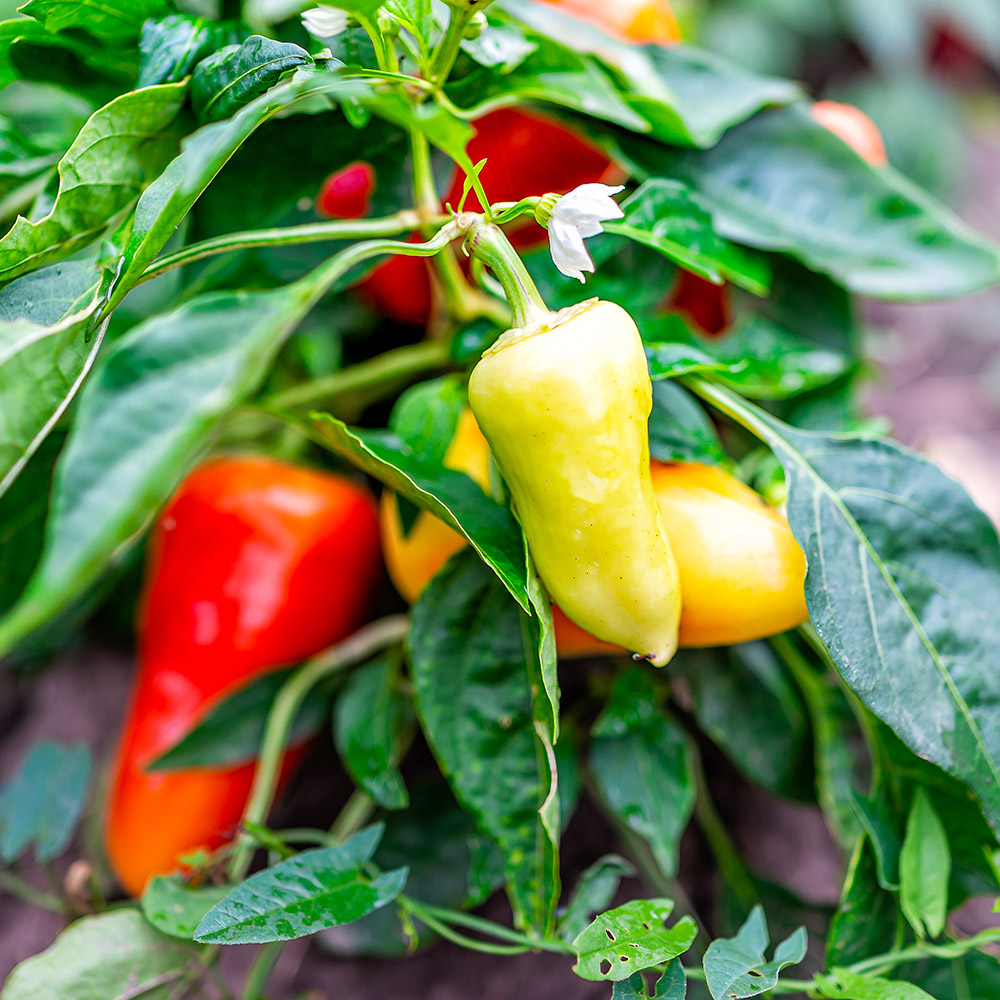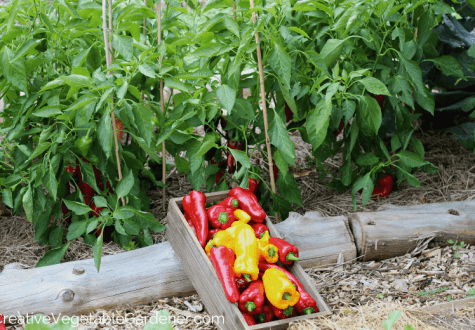Best Fertilizers for Peppers: Boost Development and Taste Naturally
Best Fertilizers for Peppers: Boost Development and Taste Naturally
Blog Article
Organic Vs. Synthetic Fertilizers: Which Is Best for Supporting Healthy And Balanced Pepper Plants?
In the realm of nurturing healthy and balanced pepper plants, the selection in between synthetic and natural plant foods stands as an essential decision with far-reaching effects. While both alternatives goal to offer vital nutrients to support plant development, the subtleties of their effect on the soil, plant wellness, and the setting stimulate a debate that mirrors throughout the gardening community. Recognizing the distinctive benefits and prospective mistakes of each fertilizer kind is vital for pepper growers looking for to enhance their yields while keeping a lasting and eco-conscious method.
Advantages of Organic Fertilizers
Organic plant foods use a sustainable and environmentally-friendly strategy to beneficial pepper plants, providing crucial nutrients without using synthetic chemicals. These natural plant foods are originated from natural resources such as compost, manure, bone dish, and seaweed, advertising dirt health and wellness and biodiversity. Unlike artificial plant foods, organic alternatives release nutrients gradually, guaranteeing a balanced and constant supply for pepper plants to flourish.
One substantial advantage of natural fertilizers is their capacity to improve dirt structure and water retention. By boosting soil health and wellness, organic plant foods promote advantageous microbial task, which aids in nutrient uptake by pepper plants. In addition, natural plant foods decrease the threat of chemical run-off, protecting water sources from air pollution and protecting the setting.
Furthermore, organic plant foods add to long-term soil fertility by promoting the development of valuable dirt organisms. These organisms assist damage down raw material, releasing nutrients in a type that is quickly obtainable to pepper plants. best fertilizers for peppers. By fostering a healthy soil ecological community, natural fertilizers support sustainable pepper growing methods that profit both plants and the setting
Downsides of Artificial Plant Foods
Artificial fertilizers, in contrast to their natural counterparts, present different negative aspects when made use of to nurture pepper plants, influencing both plant wellness and ecological sustainability. One significant downside of artificial plant foods is their propensity to seep nutrients from the dirt rapidly. This rapid leaching can result in nutrient discrepancies in the soil, creating plants to experience shortages or toxicities. In addition, synthetic plant foods can harm beneficial dirt microorganisms, such as earthworms and helpful germs, interrupting the dirt ecosystem's equilibrium.
Furthermore, the overuse of artificial plant foods can contribute to water air pollution. Excess plant foods not absorbed by plants can clean away into water bodies, leading to eutrophication, where algae blossoms diminish oxygen levels in the water, damaging water life. Synthetic plant foods are usually acquired from non-renewable resources, such as fossil gas, contributing to carbon discharges and environmental degradation during their manufacturing.
Nutrient Absorption Contrast
When comparing artificial and natural fertilizers in terms of nutrient absorption, organic fertilizers have the advantage of supplying a more balanced and slow-release source of nutrients. Organic plant foods consist of a selection of macro and trace elements that are not only beneficial for the plants but also promote healthy soil microbial activity, which helps in nutrient uptake.
In look at here now addition, natural plant foods enhance soil structure and water retention capacity, enabling pepper plants to gain access to nutrients much more effectively. This enhanced dirt top quality promotes origin growth, allowing better nutrient absorption. Synthetic fertilizers, although at first improving plant growth because of their high nutrient concentrations, may impede long-term nutrient absorption by degrading dirt wellness gradually.
Environmental Impact Considerations

On the various other hand, artificial fertilizers, although frequently more focused and promptly readily available to plants, can have destructive impacts on the environment otherwise applied effectively (best fertilizers for peppers). Their production calls for high power inputs, leading to greenhouse gas exhausts and adding to climate modification. Furthermore, the drainage of excess synthetic plant foods can contaminate water resources, leading to eutrophication published here and harming water communities.
Ideal Fertilizer Practices for Peppers
To achieve this, it is vital to comply with finest plant food methods tailored to the particular needs of pepper plants. One important method is to do a dirt examination prior to applying any kind of fertilizers.
An additional crucial practice is to fertilize pepper plants at the appropriate time. Usually, peppers gain from receiving fertilizer at growing and after that again when they start to blossom. Over-fertilizing can bring about vitamins and mineral inequalities and hurt the plants, so it is important to follow advised application prices.
In addition, selecting a well balanced fertilizer with an NPK proportion that matches pepper plants' needs is essential. Inevitably, integrating synthetic and natural fertilizers sensibly can help support healthy and balanced pepper plants while reducing ecological impact.
Verdict

Organic plant foods provide an environmentally-friendly and lasting method to beneficial pepper plants, giving vital nutrients without the usage of synthetic chemicals. Unlike synthetic plant foods, natural options release nutrients gradually, ensuring a stable and well balanced supply for pepper plants to grow.
Synthetic fertilizers, in comparison to their natural equivalents, pose various downsides when used to nourish pepper plants, affecting both plant wellness and ecological sustainability. When contrasting organic and synthetic fertilizers in terms of nutrient absorption, organic fertilizers have the benefit of supplying an extra balanced and slow-release source of nutrients.Additionally, natural plant foods boost dirt framework and water retention ability, allowing pepper plants to access nutrients much more effectively.
Report this page